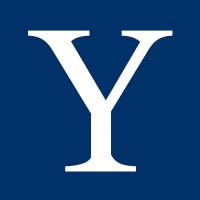ASCEND - Faculty Collaboration Grants (2026)
Yale University.com
Office
New Haven, CT
Full Time
Description
As part of the ASCEND Initiative, faculty collaboration grants are meant to support projects conducted by at least one HBCU faculty member and one Yale faculty member who - in collaboration - conduct research that transcends institutional boundaries, encourages interdisciplinary inquiry, and contributes collective expertise to global challenges. These awards encourage faculty to combine their perspectives and scholarly strengths to create novel insights and outcomes.
Qualifications
Project scale can vary: proposals are welcome for “seed” projects to be developed as prototypes for a larger-scale future projects, or for projects that would be fully complete within the two-year period, or they can be somewhere in between. Project scope can vary: proposals can be for academic and applied research projects, community-based research projects, and public policy related projects, and projects can engage a broad range of materials and sources. Projects across all fields are welcome - arts, humanities, social sciences, sciences, professional disciplines, their intersections, and beyond.
Eligibility
Projects must be led by at least two faculty members: one from an HBCU partner institution and one from Yale. Proposals including student and postdoc participation are encouraged.
Award
The maximum award per project is $125,000 in total over 1-2 years.
Application Instructions
Each proposal should be developed jointly by the HBCU and Yale faculty members, and should include these components:
- The project title, summary statement, and the names of lead faculty from each institution: provide a short summary giving a unique, relevant, and intriguing description of your research plan. (250 words, maximum)
- Project abstract: summarize the project’s goals. Describe the research plan, methods, and source materials that will be used to achieve the goals. (500 words, maximum)
- Project timeline: list the key project dates including the start and end dates as well as major milestones.
- Relevance statement: what benefits or outcomes will this project contribute to the academic field, the community, public policy, or other human interests? (500 words, maximum)
- Resources: what existing resources (to which access is already available) will participants in this project use? What resources - not currently available - will be needed, and how will participants gain access? How will these resources be used? (500 words, maximum)
- Each proposal should be developed jointly by the HBCU and Yale faculty members, and should include these components:
- The project title, summary statement, and the names of lead faculty from each institution: provide a short summary giving a unique, relevant, and intriguing description of your research plan. (250 words, maximum)
- Estimated Budget: What is the total cost of this project, and how will the funds be used? Please provide a detailed breakdown of estimated expenses, including: Allowable expenses include compensation for relevant personnel (e.g., postdocs, student workers), materials, services, and course releases (with institutional approval from the HBCU partner). All expenditures must follow Yale’s policy on the appropriate use of university research funds.
- A year-by-year breakdown of the total project budget
- A breakdown of expenses allocated to each institution (in part or in full) for each year
- Abbreviated project abstract: If funded, this abstract will be featured on the university website. Please provide a two-sentence summation of the project significance, goals, and outcomes.
- One-page summary CV statement for each faculty member involved.
- Any other documents you wish to share.
- A year-by-year breakdown of the total project budget
- A breakdown of expenses allocated to each institution (in part or in full) for each year
Submitting The Proposal
Proposal applications should be submitted via Interfolio no later than January 2, 2026. Awards will be announced April 1, 2026.
Equal Employment Opportunity Statement
The University is committed to basing judgments concerning the admission, education, and employment of individuals upon their qualifications and abilities and seeks to attract to its faculty, staff, and student body qualified persons from a broad range of backgrounds and perspectives.
Additionally, in accordance with this Policy and as delineated by federal and Connecticut law, Yale does not discriminate in admissions, educational programs, or employment against any individual on account of that individual’s sex; sexual orientation; gender identity or expression; pregnancy, childbirth or related conditions; race; color; national or ethnic origin; religion; age; disability; protected veteran status, or other protected classes as set forth in federal and Connecticut law.
Professional Conduct Review for New Faculty Hires
The final candidate, upon acceptance of a contingent offer of employment/faculty appointment, may be required to disclose whether they are, or have been, the subject of any disciplinary proceeding (investigation, hearing, etc.) at previous institutions or employers, and may also be subject to a background screening. Candidates who materially misrepresent information on their resume or other application materials are ineligible for hire/appointment. Final candidates may also be required to sign a release to allow Yale to solicit information regarding any substantiated conduct violations from current and/or past employers.
ASCEND - Faculty Collaboration Grants (2026)
Office
New Haven, CT
Full Time
October 1, 2025
